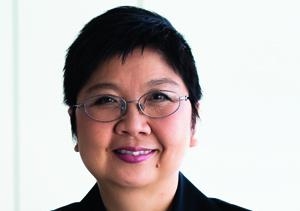Learning how to be a global citizen
We need to be constantly and creatively thinking - and teaching - about the globalised environment in which we work and live, writes Pro-Vice-Chancellor (Students) Wai Fong Chua.
We need to be constantly and creatively thinking - and teaching - about the globalised environment in which we work and live, writes Pro-Vice-Chancellor (Students) Wai Fong Chua.

OPINION: The recent discussion over a proposed 'reverse Colombo Plan' has been too narrowly focused.
Student mobility is a wonderful, rich, personalised and largely successful means of achieving the globalisation of education. From personal experience, it's no exaggeration to say that it changes lives.
I came to Australia and the University of New South Wales via a very circuitous route. Having grown up in Malaysia in an ethnic Chinese family, I learnt rudimentary German at school, in between Cantonese, Bahasa Malaysia and English, before going to Britain to study at university. While there I spent a summer brushing up my German in Austria.
Our German teacher introduced herself by promising to speak nothing but German for the duration of our program. One had to adapt - quickly - and not just to a foreign language. I learnt that no matter how unfamiliar the environment, confidence and cross-cultural experience could take you a long way.
While we can do our best to promote the benefits of people-to-people links, only a small percentage of students will ever have the opportunity, means or inclination to study overseas.
At UNSW in 2011, for example, 1900 international students were on student exchange programs here and only 1300 of our students, about 3 per cent, were on exchange overseas.And while, student mobility is soaring worldwide, the four-fold increase in students studying outside their country of citizenship since 1975 to some 3.7 million is still just a tiny proportion of the world's fast growing cohorts of tertiary students.
That means finding effective ways of promoting a global perspective and developing commensurate skills in situ.
Firstly, we can internationalise our curriculum. At UNSW, we have over 100 courses with a specific international focus and can infuse many more of our courses with international content. The kind of case studies we use in teaching, in particular, can make the difference between seeing another society as foreign, or feeling familiar with its economy, society and people.
But the most important resource we have for producing global graduates is largely overlooked: the 20 per cent of enrolments from overseas students. It's not unusual to have over 100 nationalities studying together. At UNSW, among our 52,000 students are 11,000 from 120 countries.
We need to put into place structures that facilitate integration, not only to more effectively build social links, but to create incentives for students from across cultural groups to collaborate academically. That can mean more imaginative group work in class, which utilises the cultural literacy and range of knowledge of the diverse student body.
We have a diverse body of teachers and researchers who have trained overseas and who can bring those experiences into our classrooms. We have started a practice group at UNSW and run workshops to enable academics to share their teaching practices and thereby become more effective teachers of a cosmopolitan outlook.
Another new initiative is an intern program for international students to work across the university, such as in the library, where they have the widest possible exposure to other students.
Part of being a global citizen is simply having the confidence and interest to step into another culture or society and to be willing to recognise other perspectives.
We all know that one can travel and yet stay still by sticking to familiar resorts or food. Nowadays we have more opportunity than ever before to stay still and yet travel. But we need to be constantly and creatively thinking - and teaching - about the globalised environment in which we work and live.
Professor Wai Fong Chua is Pro-Vice-Chancellor (Students) at UNSW
This opinion piece first appeared in The Australian